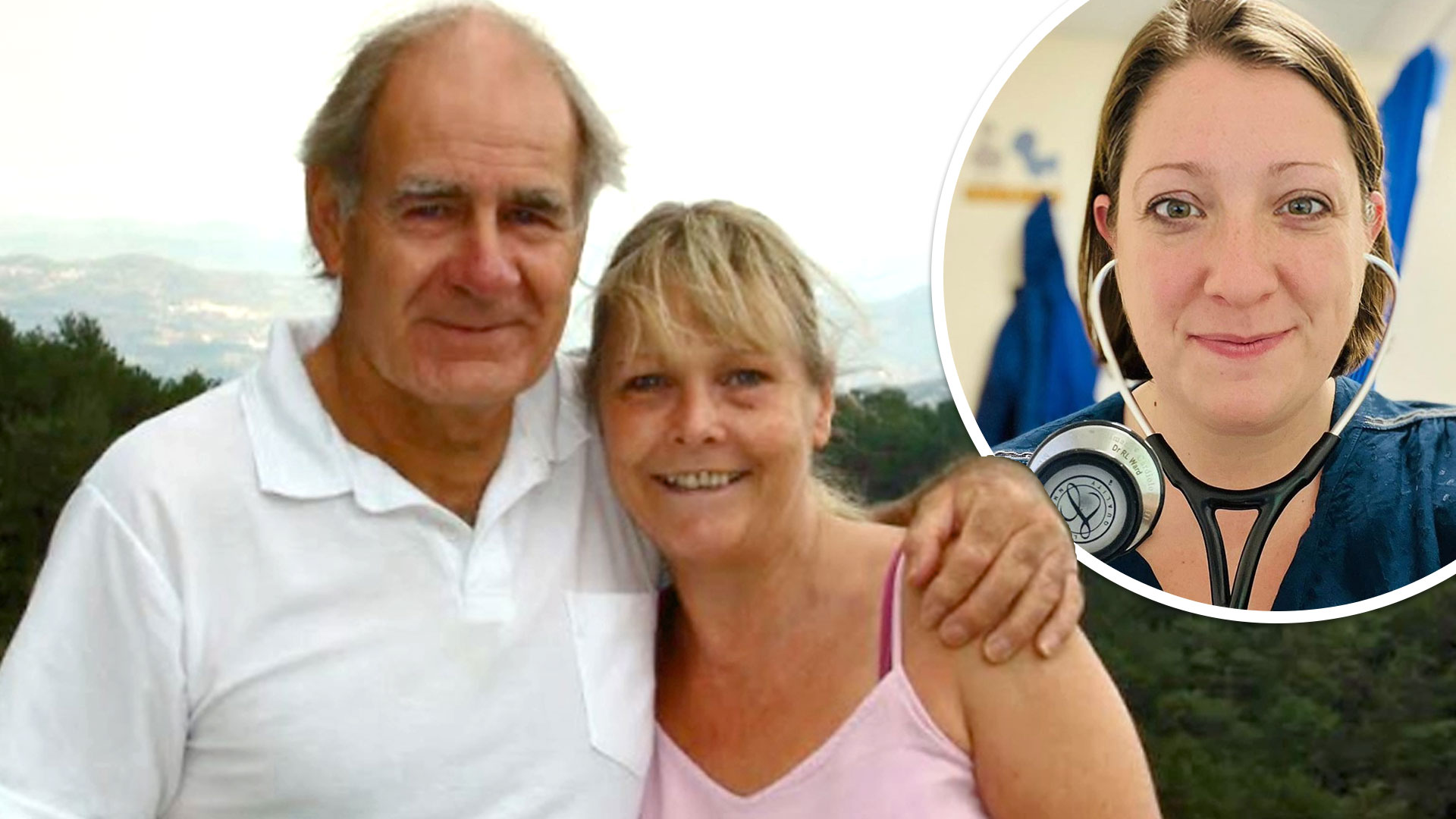- August 2, 2022
- No Comment
- 7 minutes read
My husband chased an imaginary dog – I put it down to his age but it was sign of killer disease… – The US Sun

IT’S the leading cause of death in British women, and the second biggest killer of men.
Around 944,000 people are thought to be living with dementia in the UK, and charities warn that number is set to breach the million mark in the next three years.
But experts warn that might be just the tip of the iceberg.
Of those thought to have dementia, just over 525,000 are logged as official cases — meaning around 400,000 people could be living with hidden disease.
NHS GP Dr Rachel Ward tells Sun Health the true numbers are not fully known. She says: “In my experience many families and partners care for loved ones with dementia and compensate for their challenges, especially in early cases.
“People don’t necessarily want to get a formal diagnosis, often due to some denial or because they think it won’t change anything.
“It is definitely worth getting a formal diagnosis so you can access the best treatments and support.”
Dementia is an umbrella term for a range of progressive conditions that affect the brain.
The most common are Alzheimer’s, vascular dementia, Lewy body dementia, frontotemporal and mixed dementia.
While memory loss is among the most common symptoms, there are over 200 different types of dementia, and many different symptoms.
Last week, scientists at Tianjin Medical University in China warned that those who eat ultra-processed foods — such as fizzy drinks, chips and cookies — are at greater risk of developing the disease.
Meanwhile, a UK Government research group — the Committee on the Medical Effects of Air Pollutants — has found air pollution “likely” increases the risk of accelerated “cognitive decline” and of “developing dementia” in older people.
Here, we look at the illness that can begin subtly, and reveal the signs you must never ignore in a loved one.
WHEN Julie realised her husband Brian was seeing things, she put it down to his age.
Like many, Julie, 68, had no idea at the time that hallucinations are a frequent — but often missed — red flag symptom of a common form of dementia.
Speaking after her husband’s death last year, Julie tells Sun Health she wants others to be aware of the lesser-known signs.
“People need to know about signs to be aware of,” she says.
“How intense they are, how often they happen, so they have a log and can keep a check. You brush it under the carpet or put it down to age, and it most certainly wasn’t.”
Brian began seeing small animals running across the fireplace while watching television. Then he said there was an old lady at the end of the bed talking to him.
Julie adds: “He would chase around the house looking for a dog. He would shout out of the window at children in the street, but there weren’t any children there.
“I was just trying to reason with him, but for Brian this was real.”
Eventually, her husband of more than 40 years was diagnosed with Lewy body dementia and Parkinson’s disease dementia — which can show up as hallucinations and delusions.
I was just trying to reason with him, but for Brian this was real.
Lewy body dementia is the third most common caue of dementia, with more than 100,000 people living with it in the UK.
Brian was diagnosed with Parkinson’s in 2011, but Julie thinks he had started to show signs, also of dementia, as early as 2008.
At first, she thought he was having mental health problems. She says even the doctors did not seem to realise he could have a form of dementia.
It was not until March 2021 that dementia came up as a concern, with Brian dying that June, aged 74. Up until that point, doctors remained fixed on a straight Parkinson’s diagnosis and only offered treatment for that.
This left Julie and Brian struggling to cope for a decade as his health declined.
“Typically, people think of memory loss when they think of dementia, but there are other lesser-known symptoms that people need to be mindful of, including mood changes, difficulty concentrating and following a conversation, and sleep disturbances,” says Zena Aldridge, a PhD student and Admiral nurse research fellow at Dementia UK.
“Although there is no cure for dementia, receiving a timely diagnosis enables the person and their family to plan for their future and seek appropriate support.”
ONE in four people shows symptoms for more than two years before they are diagnosed, but these are often dismissed as signs of old age.
“Asking the same question over and over is not getting old, it’s called getting ill,” says Kate Lee, chief executive of the Alzheimer’s Society.
The early stage of dementia is cognitive impairment and may not be very noticeable, or may be mistaken for something else, such as depression.
The signs of this stage can be subtle, but include:
NHS guidance says that people with Lewy body dementia may have:
Professor Alistair Burns, NHS England’s dementia chief, said: “Older people consider forgetfulness and memory loss as normal ageing, so don’t do anything.
“There are many things the NHS can do for people if they get a diagnosis. There is support for their carers too, so if you or someone you know is worried about these symptoms, please approach your GP.”
Horrifying image shows passenger ‘riddled with monkeypox’ on packed train
Two symptoms that signal you could have Covid instead of a cold
Urgent health warning to holidaymakers this year as cases of fatal bug rise
NHS rolls out ‘life-changing’ tech to help millions with deadly condition
© 2020 THE SUN, US, INC. ALL RIGHTS RESERVED | TERMS OF USE | PRIVACY | YOUR AD CHOICES | SITEMAP

